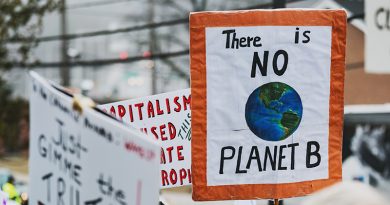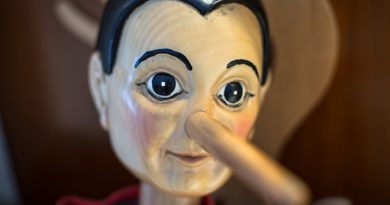Poverty is everyone’s business
In 2017, Dominic Cummings, Boris Johnson’s newly appointed senior advisor addressed the perception in some quarters that the Tories did not care about the poor. He said,
“That is what most people in the country have thought about the Tory party for decades. I know a lot of Tory MPs and I am sad to say the public is basically correct. Tory MPs largely do not care about these poorer people.”
At times it can appear as if the UK government is wilfully negligent of our society’s most needy citizens. How are we to react to the news last week that the some £3.5 million of EU funding intended to help battle child poverty and homelessness has not been allocated? It was with concern that the House of Lords EU Home Affairs Sub-Committee wrote to the Home Office stating that some of the cash has been forfeited through non-use and that, according to the BBC, after almost six years the government has failed to deliver spending aimed at addressing “the worst forms of poverty”.
At around the same time, the latest report from the Social Metrics Commission (SMC), which was formed in 2016 to develop new strategies around approaches to poverty, was published. It makes for alarming reading.
Considering that UK total wealth stands at an all-time high of £12.8 trillion some of the statistics contained in the SMC report should shame us all. This is, all the evidence shows, a country of haves and have nots.
Chief amongst a number of startling revelations was that there are 14.3 million people in poverty in the UK. This includes 8.3 million working-age adults; 4.6 million children; and 1.3 million pension-age adults. More than this, in the words of the report, just under half (49%) of those in poverty are in persistent poverty, meaning they are in poverty now and have also been in poverty for at least two of the previous three years. This totals 7 million people, including 2.3 million children, 1.2 million people living in lone-parent families, and 1.8 million of those living in workless households.
Of particular interest to Wales is the fact that rates of poverty are higher here (24%) than in Scotland or Northern Ireland (both at 20%). The UK national average is 22% and the overall poverty rate in London is at 28% – which is a full 10 percentage points higher than in the South West of England.
According to some campaigners, the austerity policies implemented by the government over the last few years have seriously challenged some twenty years of progress in the battle to eradicate widespread poverty. Alison Garnham, the chief executive of Child Poverty Action Group stated in the Guardian : “By cutting £40bn a year from our work and pensions budget through cuts and freezes to tax credits and benefits, the government has put progress into reverse.”
In a sense, then, BBC 2’s new three part documentary series, Broke, is perfectly timed. Though in truth it would have been relevant and crucial at any time over the last ten years.
If you didn’t see the first episode you could be forgiven for finding reasons to avoid it – another festival of misery featuring the feckless and self – obsessed. Who needs that?
Nothing could be further from the truth. The series focusses on how working families struggle to survive on low wages – poignantly and movingly conveying the many inequities of austerity Britain.
In the first episode we met 59 year old Mark, who lives in a Housing Association flat with his wife, Mimi. Mark is a veteran of a number of careers but with no savings or pension drives an Uber taxi around London for seven days a week. His ability to keep doing this is likely to be curtailed by the onset of recently diagnosed diabetes. Mark is emblematic, as the narration says, of many millions living on the edge. 15 million of us have no pension provisions and 6.5 million have no savings to speak of.
Then there is father and son, Steve and Billy. After Steve lost his job and their home, the pair (Billy is in his early twenties) have lived in tents in woods or at the coast. Steve struggles for work and like many thousands on zero hour contracts, the 50 year old doesn’t know how much work he will get from one day to the next. Temporary accommodation was available – but it was some 50 miles away in a hostel away from their community. The pair exist hand to mouth. The odds against them finding permanent housing and employment are seemingly very high.
Lastly, there is Ross and his wife and three children. Very much a product of his environment, Port Talbot resident Ross has worked in the steel works for the last 20 years, where, according to the voice over, his pay has not kept up with inflation or the cost of living. Effectively, he now earns less than he did when he started. After tax, he takes home £375 a week. He has a mortgage, three kids to support and £8,000 of credit card debt.
Though the families featured were shown coping and surviving through various degrees of stress and anxiety, what really shone through was their dignity, humour and resolve. As we were told: being broke does not mean being broken.
xxxxxxxxxxxxxxxxxxxxxxxxxxxxxxxxxxxxxxxxxxxxxxxxxxxxxxxxxxxxxxxxx
Prime Minister Johnson’s visit to Wales on Tuesday was marked by his refusal to allow interviews with BBC Wales, ITV Wales and the Western Mail. In the case of the broadcasters, ITV Wales’ Adrian Masters tweeted that they were, “offered chance to ask questions, but not to film them.” Which of course utterly negates the point of a television interview.
Johnson’s unwillingness to be scrutinised by journalists is depressing but entirely predictable. In his leadership campaign he granted very few interviews and in those he did consent to, he performed very poorly. Andrew Neil subjected him to a torrid interrogation described by Ian Peck in the Independent as an interview which showed Johnson as:
“A liar, a phoney, a fraud and a charlatan, coming up several leagues short, completely unprepared for the task in front of him. Boris Johnson knows that bluster is all he’s got. There is nothing else.”
So now the Prime Minister must control the narrative and that involves convincing the country that should a no – deal Brexit take place, then it’s the fault of the EU for refusing to budge. As Johnson said on Tuesday:
“We’re not aiming for a no-deal Brexit, we don’t think that’s where we’ll end up….This is very much up to our friends and partners across the channel”.
Expect much, much more of this.
Incidentally, as austerity continues to bite for people such as those featured in Broke, the government has announced that an additional £2.1 billion of funding is to be made available in preparation for a no-deal Brexit.




